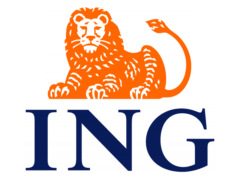

Economy
ING Joins Innovative Circular Economy 100
ING has joined Ellen MacArthur Foundation’s Circular Economy 100 (CE100) programme as a corporate member. The CE100 programme is an international platform for innovation and collaboration, to help speed up the transition into a circular economy. ING’s membership follows the successful launch of its first green bond.
ING has been selected to join other organisations who are international frontrunners for sustainability to develop knowledge sharing and capacity building. Through the Ellen MacArthur Foundation, ING aims to grow its knowledge and network, by collaborating with experts, partners and other CE100 members to promote the circular economy and unlock business opportunities.
ING’s membership of the CE100 programme is in line with the bank’s sustainability strategy to help clients with their transition towards more sustainable business models, including the move from a model based on the “take, make and waste” processes to the circular economy model focused on the “reduce, reuse and recycle” principles.
Gerald Naber, Vice President Sustainable Finance at ING said: “For ING, sustainable business is better business and we look forward to enhancing our efforts to integrate sustainability through our membership of the CE100 programme. We are honoured to be working alongside one of the worlds most distinguished circular economy champions and believe that this is a fantastic opportunity to learn, gain and contribute to global sustainability.
“To thrive in a world where sustainability takes centre stage, forward-looking businesses are embracing sustainability requirements, using them to foster innovation, drive competitiveness, and create new business models. The circular economy is the ultimate answer to solving the problem of the depletion and economic scarcity of resources, but it also creates new business opportunities. As a leading global bank, we are actively engaging with our clients to come up with the solutions that will support their transition.”
ING’s membership of the CE100 programme follows the successful launch of its inaugural green bond in November 2015, which was subsequently cited as an example of how the private sector can help build climate resilience by the United Nations. ING also committed to using 20% of the proceeds for new green lending. The refinancing part of the bond is being used for global scale projects, in key areas such as renewable energy, green commercial real estate, low-carbon transport, water and waste.
ING actively seeks out circular economy financing opportunities and has produced a number of research papers exploring alternative sustainable business models. In a recent report by ING, “From assets to access”, Senior Economist, Jurjen Witteveen, examines the capital goods manufacturing industry and its transition from a product provider to a services provider. This business model allows closer relations with the customer through enhanced product development and can provide greater business value to both parties.


 Environment12 months ago
Environment12 months agoAre Polymer Banknotes: an Eco-Friendly Trend or a Groundswell?

 Features11 months ago
Features11 months agoEco-Friendly Cryptocurrencies: Sustainable Investment Choices

 Features12 months ago
Features12 months agoEco-Friendly Crypto Traders Must Find the Right Exchange

 Energy11 months ago
Energy11 months agoThe Growing Role of Solar Panels in Ireland’s Energy Future





























